Iran Describes Talks With Saudi Arabia As Optimal
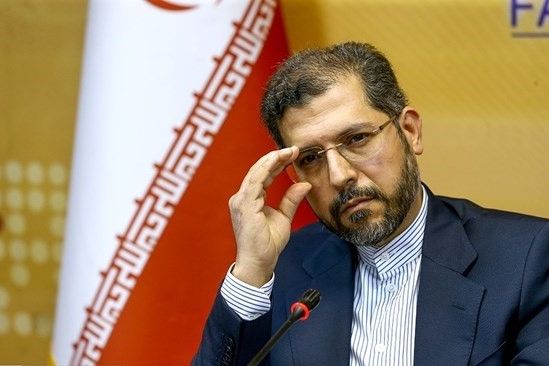
Talks between the Islamic Republic of Iran and Saudi Arabia “are in their best state”, foreign ministry spokesman Saeed Khatibazadeh said in Tehran on Monday.

Talks between the Islamic Republic of Iran and Saudi Arabia “are in their best state”, foreign ministry spokesman Saeed Khatibazadeh said in Tehran on Monday.
Khatibzadeh told reporters that there are no pre-conditions by the two sides in the current talks.
The Iranian spokesman did not confirm reports that a Saudi delegation will visit Tehran to reopen its embassy after Riyadh cut relations following the sacking of its diplomatic mission by Iranian protesters in January 2016.
Iran President Ebrahim Raisi (Raeesi) and his foreign policy team have several times emphasized that the priority of the new government in Tehran is to improve relations with regional countries. The United States and its regional allies demand a change in Tehran’s interferences in the rgion.
Saudi Foreign Minister Prince Faisal bin Farhan al-Saud had said Sunday that the latest round of talks had taken place on Sept. 21. He did not give the location of the meeting. But he emphasized that talks were still in their early stages.
"These discussions are still in the exploratory phase. We hope they will provide a basis to address unresolved issues between the two sides and we will strive and work to realize that,” he said.
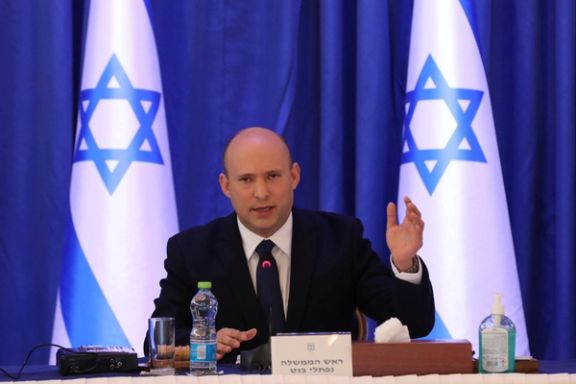
Israel accused Iran on Monday of orchestrating an attempted attack against Israelis in Cyprus after Cypriot police said an armed individual had been arrested.
"This was a terrorist incident directed by Iran against Israeli businesspeople living in Cyprus," Matan Sidi, spokesman for Prime Minister Naftali Bennett, said in a statement.
Iran's embassy in Cyprus on Monday described Israel's claims as 'baseless' that Tehran had plotted against Israelis on the island.
"This regime is always making such a baseless allegation against the Islamic Republic of Iran," the Iranian embassy said in an emailed response to a comment sought by Reuters.
Earlier on Monday, Cypriot police chief Stelios Papatheodorou told reporters: "A person has been arrested, in whose possession a pistol and cartridges were found."
"It is a sensitive case, which is why a remand request was held behind closed doors," Papatheodorou added.
Cypriot media, citing a police source, have reported that the suspect, who has not been charged, was arrested on Sept. 27 in the capital Nicosia, just after crossing by car from a checkpoint linking the Turkish-controlled north and the southern parts of the ethnically divided island.
A silencer was also found in his vehicle, the reports said. People using the checkpoint at the time reported extensive searches of vehicles during the crossover transit.
Israel appeared to hint that its intelligence services had contributed to Cyprus' foiling of the suspected attack plot.
"There are security threats. As you can see, the Shin Bet, the Mossad, all of the security forces know how to handle them," Foreign Minister Yair Lapid told reporters when asked about the incident. "The fact is that we're there. We're minding matters."
Cypriot media have also reported that the suspect was on the island for about 20 days prior to his arrest and rented two cars in succession. They said he used an electric scooter to travel frequently to the north side of the island via a pedestrian crossing.
In his statement, Sidi denied local media reports on Sunday that described the arrest as having thwarted a criminally motivated assassination attempt against Teddy Sagi, an Israeli magnate.
Report by Reuters
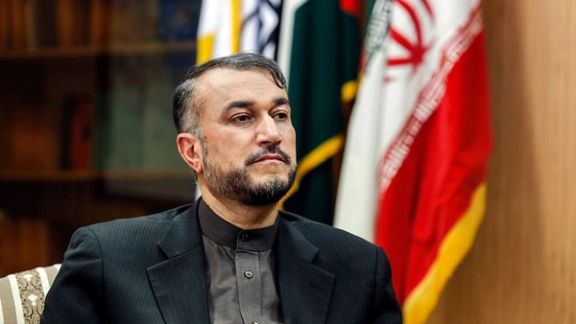
Germany rejects Iran's demands for the US to release frozen Iranian assets as a condition for nuclear talks to resume, German foreign ministry said on Monday.
"Iran cannot set any further conditions for resuming the talks," a German foreign ministry spokesman said after Iranian foreign minister Hossein Amir-Abdollahian's demand for assets worth 10 billion dollars to be released as a goodwill gesture.
Under President Donald Trump, the United States unilaterally withdrew from the 2015 agreement with Iran, Britain, France, China, Russia and Germany aimed at stopping Iran from developing a nuclear weapon.
President Joe Biden aims to restore the deal, but the sides disagree on which steps need to be taken and when, with the key issues being what constraints Tehran will accept and what sanctions Washington will remove.
"We call on Iran to resume talks as soon as possible," the German foreign ministry spokesman said, adding he expects an agreement on a specific date.
Report by Reuters

Amid fresh Azerbaijani assertiveness after the 2020 Nagorno-Karabakh war, the Armenian foreign minister, landed in Tehran Monday to confer on regional tensions.
At a joint news conference with Iranian foreign minister Hossein Amir-Abdollahian, Ararat Mirzoyan stressed Yerevan’s commitment to the Minsk process − chaired by France, Russia and the United States, and involving Iran − to deal with issues left unresolved by the war.
Mirzoyan said he had briefed Amir-Abdollahian on current developments, including efforts to build new transit roads to connect Iran and Armenia, as well as on the role of foreign "mercenaries" in the Karabakh war. Turkish, which reportedly sent in Sunni militiamen from Syria during the war, begins Tuesday army exercises along the border.
Amir-Abdollahian, who noted this was his third meeting with his Armenian counterpart in as many weeks, said that the “region and our northern neighbors” were “in dire condition, particularly due to the presence of Zionists and terrorists...”
Relations between Iran and Azerbaijan have been in flux since last year’s Armenia-Azerbaijan war over the disputed enclave of Nagorno-Karabakh. But the atmosphere soured last month when Azerbaijan arrested two Iranian truck drivers for entering Azerbaijan from Armenia through the Goris-Kapan road "without a permit.”
The road, connecting the towns of Goris and Kapan in the Armenian region of Syunik, runs through territory that Baku regained control over with the Russian-brokered deal ending the six-week Armenia-Azerbaijan war. Azerbaijan has been stopping Iranian truck drivers using the road both to reach Armenia and markets further north, and levied a $130 tax.
The Armenian government has offered Iran an alternative route through Tatev, but Iranian news agencies say this is unsuitable for heavy trucks carrying commodities like bitumen.
Tehran is also concerned over Turkey’s military and diplomatic backing for Azerbaijan. In a speech Sunday, Iran's Supreme Leader Ali Khamenei reminded Turkey that "the person who digs a well [to trap] his brothers is the first one to fall into it."
Mojtaba Zulnuri, a conservative member of the Iranian parliament’s National Security and Foreign Policy Committee, said Monday that Azerbaijan and Turkey would be "slapped hard if they want to threaten Iran's interests."
Previously, Iranian officials had generally avoided mentioning Turkey's role while expressing disquiet over Israel’srelations with Azerbaijan, which have included arms supplies and reportedly access to Azeri airfields.
In response to such remarks, Leila Abdullayeva, spokesperson for the Azeri foreign ministry, Monday denied “the presence of third-country forces near the Azerbaijan-Iran border” or any “provocation” by such forces.
Lurking in the background for Tehran is a fear of wider changes that might result from unresolved issues between Armenian and Azerbaijan. Tehran has been carrying out its own large-scale military exercises and has repeatedly warned it will not tolerate any geopolitical changes.
Armenian prime minister Nikol Pashinian Sunday criticized sections of the Iranian press for alleging Yerevan planned changes detrimental to Iran. "Armenia has never been and will never be involved in any conspiracy against Iran, because we extremely value those relations and we will never forget that Iran was the path of life for Armenia in the early 90s," he said.
But the Azeris have put forward their own demand for a ‘land corridor’, in this case through Armenia to link Azerbaijan’s western regions with Nakhchivan. Armenian Security Council Secretary Armen Grigoryan said October 2 that while Yerevan might open its roads to Azerbaijan and Turkey, it would retain control with no "sovereign corridor" inside Armenian territory. Grigoryan said existing infrastructure, including the Yerevan-Tbilisi-Baku-Russia railway, could facilitate such trade.
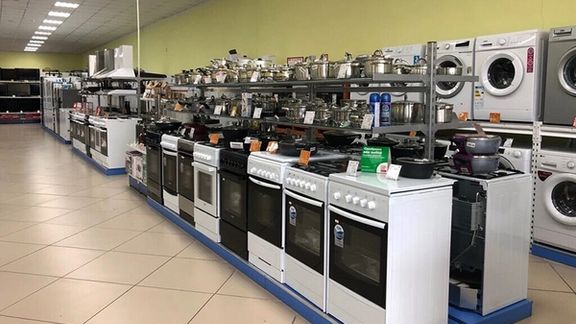
State-controlled media in Iran continue to defend a ban on South Korean home appliances, saying that the move was a “diplomatic message” to South Korea.
After a letter from Iran's Supreme Leader Ali Khamenei on September 6, President Ebrahim Raisi called on his ministers not to allow imports from South Korea’s LG and Samsung. Khamenei’s order was explained in the letter as defending local manufacturers against foreign competition.
But the Iranian Students News Agency (ISNA), a government-controlled website on Monday openly argued that Khamenei’s move was a diplomatic message to South Korea that hold around $7 billion in Iranian frozen funds. Korea was a buyer of Iranian oil until former US president Donald Trump in May 2019 expanded sanctions he had imposed a few months earlier on Iran to include all oil exports. Korea stopped buying Iranian oil but payments still pending were frozen by two Korean banks.
Most major news websites in Iran on Monday continued to cover the issue of the ban and justifying it on various grounds. On social media Iranians also continue to debate the issue, with many saying that instead of helping local industry it will add to their inefficiency in the absence of strong competition.
One Twitter user has argued that Khamenei’s interference in this matter is below his status and he should have left it to other government officials to issue the ban. But that is exactly the point. ISNA insists that Khamenei wanted his ban to take on a diplomatic message to Korea.
The ban followed speculation for some months that a reported agreement over using Iranian money frozen in Korean banks to buy humanitarian goods might be extended to cover Korean-made home appliances, which dropped out of the Iranian market when the United States introduced stringent banking sanctions in 2018.
ISNA in its Monday article called the idea of importing Korean home appliances as repatriation of Iran’s frozen funds “is insulting”.
ISNA also insists that Iranian officials at the time made it clear that Samsung and LG will be punished one day when they decide to return to Iran’s market. Others back Khamenei’s decision by arguing that it is not a sound business decision to accept Korean home appliances in lieu of the frozen funds. Iran prefers cash, but it is politically hard for the Biden Administration to authorize cash flowing to Tehran.
Nuclear talks between Iran and Western powers in Vienna are in suspension mode as Tehran has so far refused to return to the negotiations. It is trying to obtain cash as a price for its return, most probably to claim victory in the talks. But opposition to such a move in the United States would be strong, refreshing memories of the Obama administration sending cash dollars on pellets to Tehran in 2016 to free hostages.
A pattern emerges as Iran’s foreign minister Hossein Amir-Abdollahian said in a television interview on Saturday that he refused to have any contact with American officials during his September trip to the UN in New York, telling them that first the US should free $10 billion of Iran’s frozen funds.
"The Americans tried to contact us through different channels (at the UN General Assembly) in New York, and I told the mediators if America's intentions are serious then a serious indication was needed...by releasing at least $10 billion of blocked money," he said.
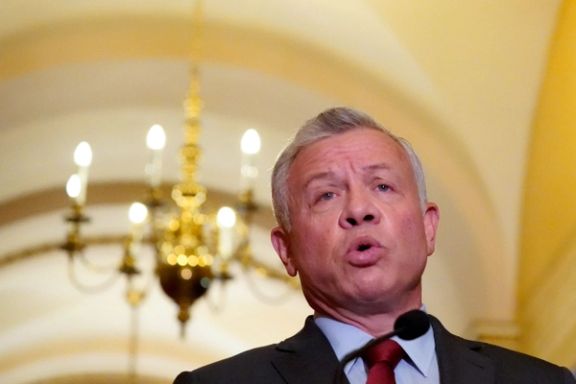
In a major move to reduce the isolation of his regime, Syria’s Bashar al-Assad called Jordan’s King Abdullah on Sunday, for the first time in a decade.
Jordan’s king has been advocating normalization of relations with Assad, calculating that the Syrian leader was there to stay. Jordan opposed Assad as a bloody civil war began in Syria a decade ago and even called for him to resign.
Abdullah affirmed his country’s support for “efforts to preserve Syria’s sovereignty, stability, territorial integrity and people.”
Reuters reports that Abdullah has been pressing Washington for months to engage Syria and back Russia's intervention in the war-torn country, saying this is needed to wean the country away from Iran's growing foothold, officials say.
The US State Department said on Wednesday that Washington has no plans to "normalize or upgrade" diplomatic relations with Assad's government and also does not encourage others to do so.
Amman has sought Russia's support to rein in the growing foothold of pro-Iranian militias who hold sway in southern Syria along the Syrian border with Jordan which has also alarmed Israel and Washington, officials add.
With reporting by Reuters and AP